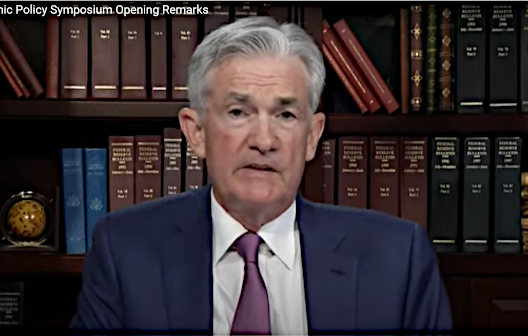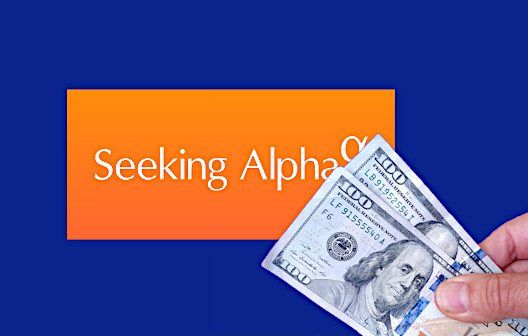Could $Hood Survive if PFOF Goes POOF?
Payment for order flow (PFOF) for stock transactions is again coming under fire. This time by the SEC Chairman. PFOF is the act of a broker taking orders from a customer and directing them to a specific market maker in the security. After the order is filled, the market maker returns a “tip,” usually fractions of a penny per share, as compensation for giving them an opportunity to fill the trade.
In an article yesterday (Aug 31), SEC Chairman Gary Gensler was interviewed by Barron’s. In response to questions, he discussed thoughts on PFOF and said that a full ban of payment for order flow is “on the table.” Part of his reasoning is, in Gensler’s words, the practice has “an inherent conflict of interest.” Market makers make a small spread on each trade, but that’s not all they get. “They get the data, they get the first look, they get to match off buyers and sellers out of that order flow,” according to Gensler. “That may not be the most efficient markets for the 2020s.”
The SEC Chief didn’t say whether the agency has found instances where the practice resulted in harm to investors. It was made known, however, that the Securities and Exchange Commission is reviewing PFOF and could come out with a proposal in the coming months.
| Gensler has mentioned several times that the U.K., Australia, and Canada forbid payment for order flow. Asked if he raises those examples because a ban could also happen in the U.S., he replied: “I’m raising this because it’s on the table. This is very clear.” – Barron’s, August 30, 2021 |
What Could This Mean for
Commission Free Trades?
The average online broker earns a low percentage of their revenue from PFOF, often as low as 10%. For Robinhood Markets, and a few other trading apps, these payments could add upwards of 80% to revenue.
The SEC says all the fractions of a penny add up to a lot of money at the expense of customers. Last year the Commission and Robinhood settled a dispute over how the company negotiated order flow and customer disclosures. The SEC alleged that Robinhood made deals during the period 2015 to 2018 with market makers that gave the company a much higher percentage of the spread – traditional brokers tend to share a higher percentage with customers. This would make each share on average a bit higher in cost than if the client had transacted with a traditional discount broker. Robinhood agreed to pay $65 million but neither admitted nor denied the allegations. The company has also said it has changed its payment for order flow practices.
Proponents of payment for order flow take a different view. Robinhood’s CFO holds the position that PFOF is a way for brokers to make money that doesn’t really hurt consumers and allows apps to charge zero commissions. He says it is a major reason that more people than ever have started investing.
PFOF can constitute up to 80% of the revenue Robinhood makes per transaction per relationship. With this math, the stock trading business model could very well be in jeopardy.
In defense of the practice, Warnick has noted that other brokers had historically accepted payment for order flow on top of commissions, Robinhood has never charged commissions for equities.
Alternatives
There has been a boom in retail trading in the past two years, with millions of new investors introduced to brokerage apps to invest in stocks, options, and cryptocurrencies for the first time. The popularity has been driven in part by a change in the way that brokers make money. Would a change in PFOF rules for stockbrokers cause this to fall apart?
If Robinhood or other high transaction brokers cannot accept PFOF from those that it “outsources” to, then it can do much of the trade matching in-house. Using its own balance sheet and systems it can execute trades at presumably better prices than available where another party is involved and achieve “best execution” while retaining the full bid/ask spread.
What Else?
On July 21 Robinhood reported their earnings for the first time as a public company. Although Robinhood is best known as a retail stock brokerage app, regulated by the SEC, among others, about 41% of their earnings came from payment for order flow from cryptocurrency transactions. At this point in time, the SEC has little say in that market.
Take-Away
The head of the SEC said yesterday that the practice of payment for order flow is on the table as something they may not allow in the near future. The adoption of commission-free trades by most brokers relies on some revenue to come from PFOF; they also benefit from unused account balances, and in some cases selling customer data.
This could cut into profits and challenge the larger, high-volume brokers initially. The smaller start-up brokers will have to continue to work with third-party “wholesalers” and earn reduced revenue from that source. Brokers that are still engaged in the practice of reducing the cost of a transaction for customers using the PFOF, may now have to pass along the full cost to their account holders.
Suggested Reading:
 Are there Enough ESG Stocks to Go Around?
|
 High Points of the Jackson Hole Presentation
|
 Your Data is Used to Generate Big Returns
|
 Seeking Alpha Paywall Causes Frustration
|
Sources:
https://www.investopedia.com/terms/p/paymentoforderflow.asp
https://www.barrons.com/articles/payment-for-order-flow-robinhood-51623412441?mod=article_inline
Stay up to date. Follow us:

|
